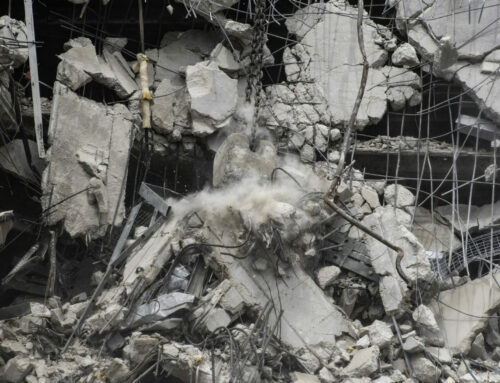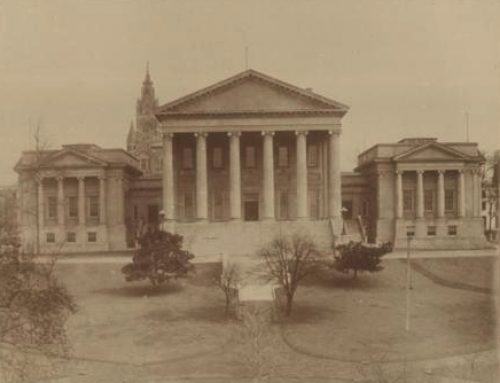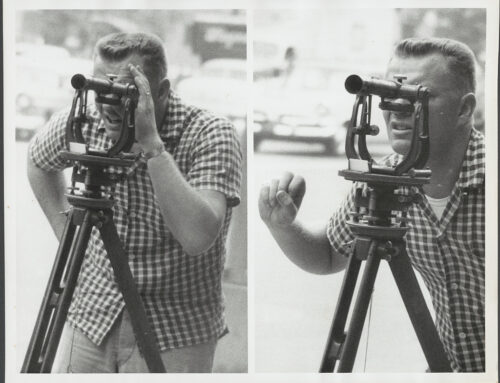The United States District Court for the Western District of Virginia excluded a landowner’s witness who had been designated to testify about the probability of gas pipeline explosions. See Atlantic Coast Pipeline, LLC v. 0.07 Acre, More or Less, in Nelson County, Virginia, et al., Case No.: 3:18-cv-00006 (E.D.Va. June 19th, 2019). The court also excluded the witness the landowner had designated to testify about sound, noise, and vibration.
The case involved condemnation of a gas pipeline easement from a property the landowner described as “a high-end, boutique bed and breakfast.” The condemnor moved to exclude the opinions and testimony of four of the landowner’s designated witnesses:
- Paykon H. Sarmadi, an architect, regarding constructions costs;
- Thomas L. Stokes, Jr., regarding “safety implications and impacts of construction” ;
- Richard Paradis, regarding noise and vibration (mind you this is a case about an easement for an underground pipeline); and
- Matthew P. Ray, an appraiser, regarding compensation.
The court denied the condemnor’s motion with regard to Sarmadi, and the court excluded a portion of Ray’s testimony that dealt with wells. However, the court excluded the entire testimony of two of the landowner’s witnesses, Richard Paradis and Thomas L. Stokes, Jr.
In excluding Stokes’ testimony, the court stated “Stokes has no training, education, or licenses in the design, construction, maintenance, inspection or operation of a natural gas pipeline.” The court then went on to hold that Stokes designated testimony
does not reflect the probability of an incident occurring on the subject property. (Dkt. 83-2 at 160:18-161:5). … Thus, any opinion or testimony regarding the probability of an incident occurring outside the property is irrelevant and must be excluded on that basis. E. Tenn. Natural Gas Co. v. 2.93 Acres, No. 4:02-cv-00179, 2007 WL 2688414, at *2 (W.D. Va. Sept. 13, 2007) (“Where a part of an owner’s land is taken for public use, just compensation does not include the diminution in value of the remainder caused by the acquisition and use of adjoining lands of others for the same undertaking.”
…
Accordingly, Stokes is not permitted to testify as to the probability of a pipeline incident.
…
Stokes cannot link his analysis to property value and, therefore, cannot aid the trier of fact in determining just compensation. Fed. R. Evid. 403, 702; see, e.g., Hoekstra v. Guardian Pipeline, LLC, 726 N.W.2d 649, 662 (Wis. Ct. App. 2006) (party must demonstrate its expert on “the effects of gas pipeline leaks, ruptures, and explosions” is able to tie that information to the effect of the pipeline on the values of the particular properties involved); Rockies Express Pipeline LLC v. Hopkins, No. 1:08-cv-00751, 2012 WL 1622532, at *5 (S.D. Ind. May 9, 2012) (expert testimony precluded where expert’s report “reveal[ed] no factual data or other bases on which he concluded stigma damages”; court noted that “one would expect that if the presence of an underground natural gas pipeline makes residential development economically non-viable, then some market data would exist to evidence that.”); see also 469 U.S. at 29 (“Considerations that may not reasonably be held to affect market value are excluded.
The landowner designated Richard R. Paradis to testify regarding the construction of the pipeline and “the impacts of the construction and operation of the pipeline on the subject property including, but not limited to, the noise and vibration impacts on the subject property as a result of the construction and operation.” In excluding Paradis’s testimony, the court cited Ryan v. Davis, 201 Va. 79 (1959), for the proposition
that any damage the property may have sustained by reason of any wrongful act or negligent acts committed during the course of construction of a highway project was not compensable in the condemnation proceeding but could form the basis of a separate suit. The commissioners were further instructed to disregard evidence of annoyance, inconvenience, or loss of business caused by dirt, noise or temporary obstruction of access caused by the actual carrying on of the construction work. Ryan, 201 Va. at 83 n.1.
The court then went on to hold that
To the extent that potential damages might arise after the taking due to construction, under Ryan the noise and vibration effects resulting from construction would be irrelevant to the issue before the Court (i.e., just compensation), and any such testimony and opinions from Paradis should be excluded.
…
Thus, the opinions and testimony of Paradis would provide no direct link between any sound or vibration generated during construction and the issue before the Court, the effect of the taking on market value and, ultimately, just compensation. As such, his testimony and opinions would not help the trier of fact determine a fact in issue and should be excluded under Fed. R. Evid. 702(a).
The court also appears to have taken issue with the fact that Paradis “did not conduct his own noise or vibration studies of ACP’s proposed activities or visit the subject property. … Nor had Paradis performed a noise analysis of pipeline construction previously.” The court found that “Paradis’ noise and vibration testimony and opinions related to construction are, respectively, irrelevant and unreliable and will be excluded.”






Leave A Comment